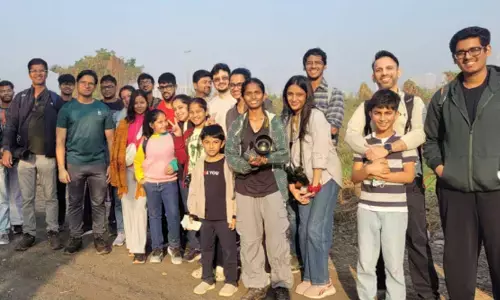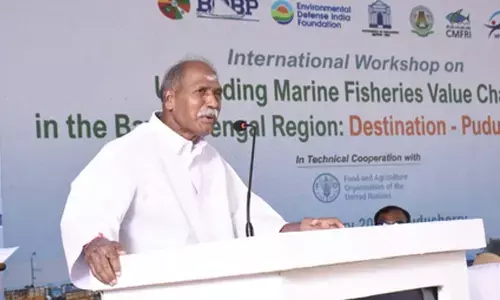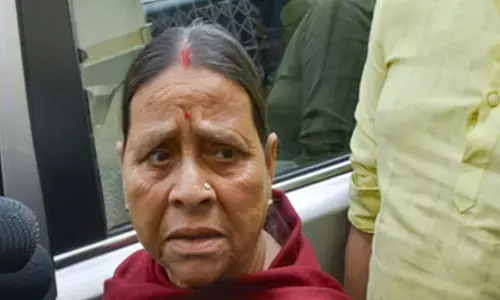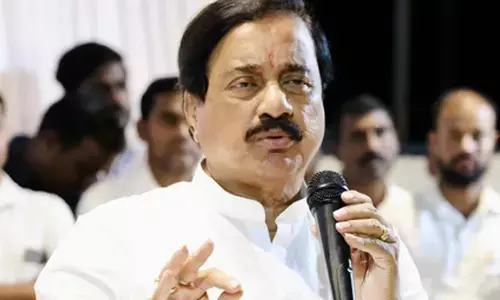Healthcare consumerism empowering patients

Healthcare consumerism empowering patients
A simple Google search shall define healthcare consumerism as a movement that advocates patients’ involvement in their own healthcare decisions
A simple Google search shall define healthcare consumerism as a movement that advocates patients' involvement in their own healthcare decisions. It is a shift from the 'doctor says/patient does' model to a 'working partnership' model." This concept, which acknowledges the role patients play as consumers and managers of their own health and wellness, has become an integral part of the healthcare landscape. Yet, in the wake of the deadly coronavirus crisis, this merits more discourse. How much agency does a patient have when he/she/they do not manufacture and supply medicines? Will a patient's will supersede a doctor's decision? In crises, how does this mutual partnership get affected? These are crucial questions for the global healthcare industry to mull over.
Healthcare consumerism empowers the consumer to dismantle a jaded provider-patient binary and make informed decisions about their bodies. This is done through an enhanced interaction between medical professionals and people, and the factoring in of specific stories in a regime where general prescriptions and diagnoses have been the norm. As Deloitte notes, "Health care is moving toward value, not volume, as a central organizing principle. That impacts how patients are cared for, how physicians and hospitals are paid, and how life sciences companies approach the market."
However, the terrain is mired with challenges of its own. One concern about healthcare has always been the need to make it universal, inclusive and accessible. A consumerist model based on purchasing power entirely does not help the cause of universal accessibility. As healthcare expert Sourabh Pagaria remarks, one major point of contention in the 'patient' vs 'consumer' debate is whether all strata of the society are, in fact, ready to be consumers. Those facing financial challenges may be discouraged from availing adequate and good-quality healthcare facilities if the industry becomes entirely consumeristic. Similarly, the older population may not be up to date with the latest technologies. This is an important challenge given that this segment of the population provides a significantly large number of consumers.
Another challenge is our collective ability to deal with health disasters. In the case of a lethal viral spread or mass disease, the inequality to access healthcare becomes all the more pointed. Even those with access may find themselves in uneasy situations, with a compromised health system with limited capacities. Thus, to assume beneficial health consumerism, health infrastructure, skilling and employment in the industry has to be bolstered across the board.
On the other side of the spectrum, consumer capabilities have to be built as well. Consumers have to be educated better about health conditions in general, their rights and responsibilities. A lifestyle of nutrition, exercise, general awareness and involvement in personal health is necessary for potential patients to avail the best out of the system. Also, consumer-driven healthcare requires collection and processing of enormous personal data, which has to be protected at all costs, lest it runs into conflict with privacy-related concerns.
To build an all-inclusive healthcare system, thus, the category of the consumer has to be more capacious with policy reforms which make healthcare widely affordable and accessible. Laws also have to be made which protect consumer privacy and agency against medical establishments which often do not hold the view that the consumer has to be centered. Consumer technology has to be beefed up and simplified, so that people in all age groups and locations can find healthcare available when needed. Health establishments have to commit themselves to understanding individual patients and persuade and educate them about the choices they have as consumers who are investing resources in availing healthcare.
The aforementioned Deloitte study did find heartening indicators in these regards. In early 2020, 51 per cent of consumers said they were very or extremely likely to tell their doctors when they disagree with them. More than half of seniors and boomers are likely to be vocal about their disagreement vs half/less than half of younger generations—63 per cent of seniors and 57 per cent of boomers vs 50 per cent of Gen X and 46 per cent of millennials and Gen Z). 42 per cent of US consumers said they used tools to measure fitness and track health-improvement goals. jumping from a mere 17 per cent in 2013. There is thus ground to be reasonably optimistic about the future of healthcare under a consumerist approach. With consumer empowerment, greater healthcare development and social coverage, there is a good chance that healthcare seekers as agents shall serve themselves better. To quote Global Health Council, "When it comes to global health, there is no 'them', only 'us.'" Inclusivity, greater health capacity, awareness and suitable laws can ensure collective health by making everyone a sensible and protected consumer. This will inevitably go a long way in conquering suffering and building a secure world.
(The author is Chief Impact Officer at Recykal Foundation)










